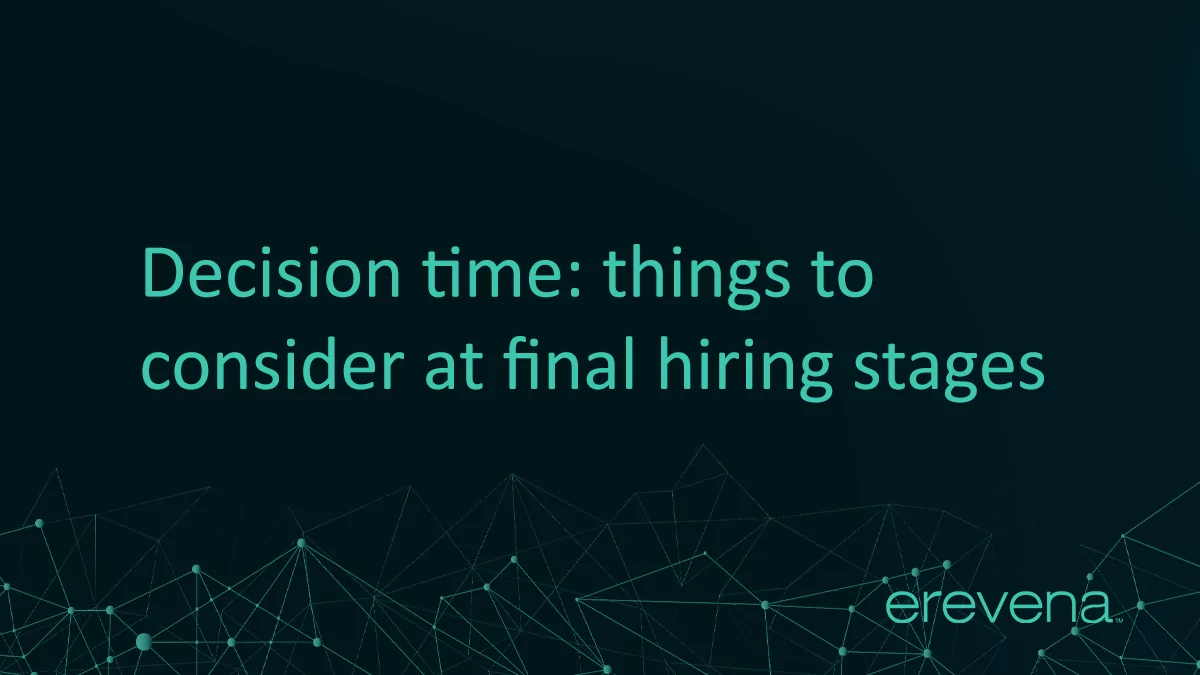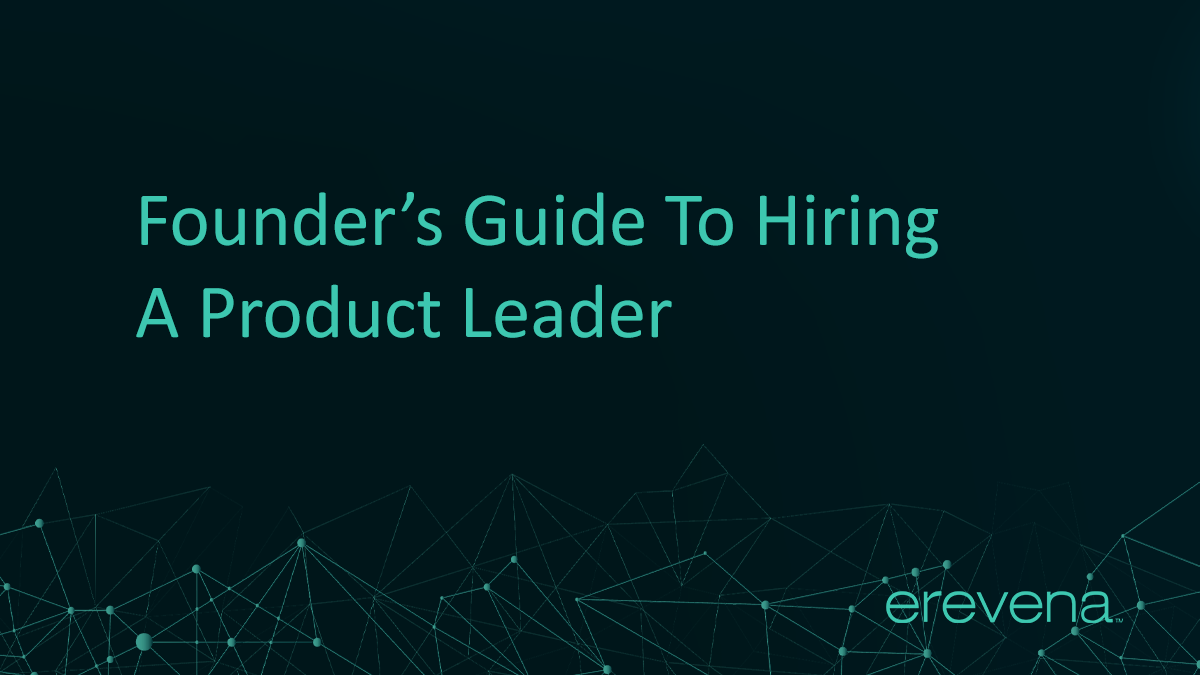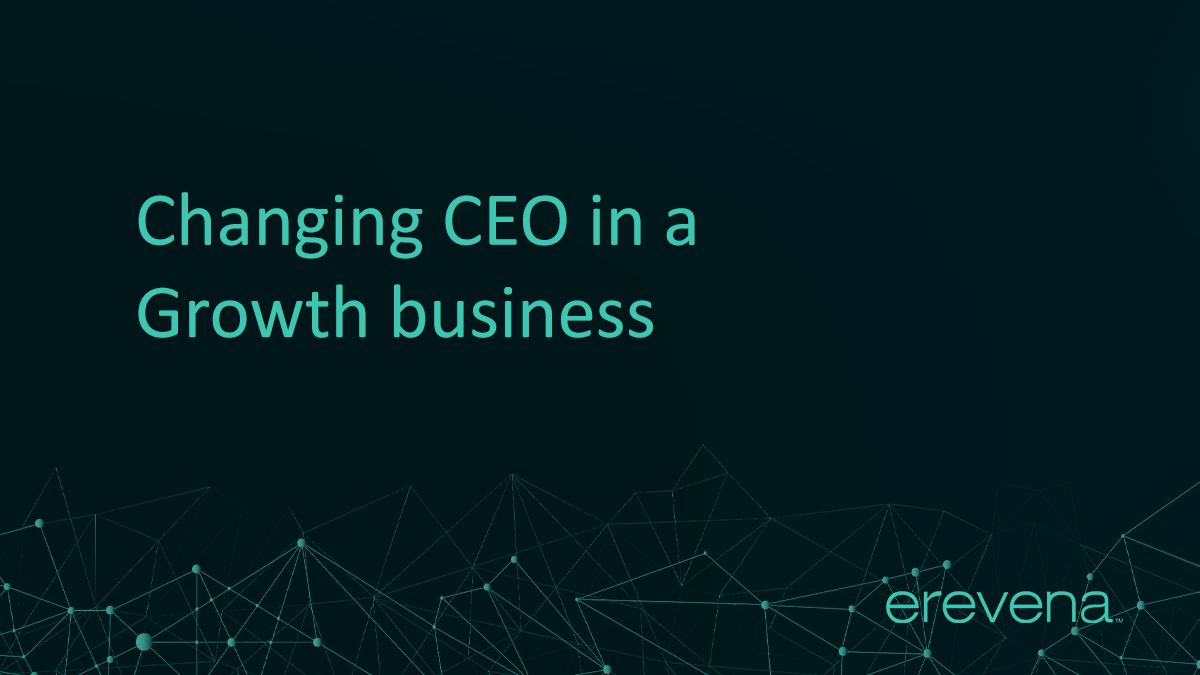Chris Batsford, Partner in Erevena Growth who specialises in hiring commercial leaders and building go-to-market teams for high-growth SaaS businesses, reflects on what makes a successful hire and some red flags to look out for when at offer stage.
The last 2 years have seen a massive increase in demand for talent within the SaaS industry and the inevitable ‘talent war’ that comes with demand has followed, this in turn has seemingly led to more candidates having shorter stints at companies. In Executive Search, I believe it is important that our placed candidates are adding long term value to our clients and therefore, I wanted to dig deeper and highlight some red flags to avoid.
Whilst the majority of placements have been successful and I am old enough to be able to say that some of my early placed candidates have been with the same employer for over 10 years 😊, why do some candidates not work out and what are the potential warning signs?
I have reflected on my last 5 years with Erevena and reviewed which of our multiple placed candidates would be defined as a long term success and those who wouldn’t., using the definition of a successful hire as someone who stayed with the business for more than 24 months.
From a data perspective, the vast majority of people not staying the course, is usually due to a change in strategy or situation on the employers side (takeovers, market positioning, new CEO etc),but as an employer there are some aspects that you can look out for to try and maximize the success of any hire.
Here are 5 red flags to spot when getting to offer stage:
- Protracted Salary Negotiations
- Candidate indecision at offer stage
- Weak or strange references
- A history of short tenures
- Situational relevance
- Protracted Salary Negotiation
Salary negotiations are a normal part of any offer process, however, a protracted salary negotiation could be a sign that the candidate is having cold feet or their motivations are financially driven rather than mission driven. If financial factors are number 1, then there will always be another new player in the market ready to ‘out-bid’ you, so be warned if it feels that the candidate is pushing back too much.
Candidate indecision at offer stage: This is a big decision for both parties, so it is important not to rush into a decision, however is a final decision taking weeks rather than days? To avoid this, it can be beneficial for all parties to include a deadline on your written offer (1 week is typical). If a candidate is stalling on making a decision without clear context as to why, this should be a major red flag and you should be working closely with your partner from Erevena or other search firm to understand the motivations here, even if the candidate is on holiday. If they’re committed to a long-term opportunity, they can surely spare 30 minutes from the sunbed to check the offer/contract and send an acceptance!
Weak or unreliable references: This one should be obvious, but sometimes people are dazzled by the ‘must-have candidate’. If they can’t provide 2-3 strong references, watch out. Ideally a candidate will be able to provide 2-3 strong formal references and your Exec Search Partner will be able to leverage their network to provide informal reference checks.
A history of short tenures: Looking through the track record of placed candidates over the last 5 years shows that if candidates have a track record of short tenures then they a more likely to move on within 24 months. That said, there are some great examples of candidates who have gone on to be successful long term employees, but they typically had clear rationale for their short tenures which were typically outside of their control (markets / takeovers etc).
Situational relevance: At Erevena this is something we work closely with our clients on right from the start of any search, to ensure that our shortlists include the most relevant potential candidates to your requirements. Are you a late stage, pre-IPO business looking for that final push before an exit? Then consider candidates who have taken a business through that journey before, or have perhaps been through that journey as a number 2 and are now ready to make that step up. Likewise, bringing in a blue-chip professional into an early stage start up can be too much of a cultural challenge and often the demands and lack of support within a start up eco-system are too challenging for someone without that experience. Note, working within a new team or new product within Microsoft or IBM is not the same as working within a start-up business!
Share this article:












